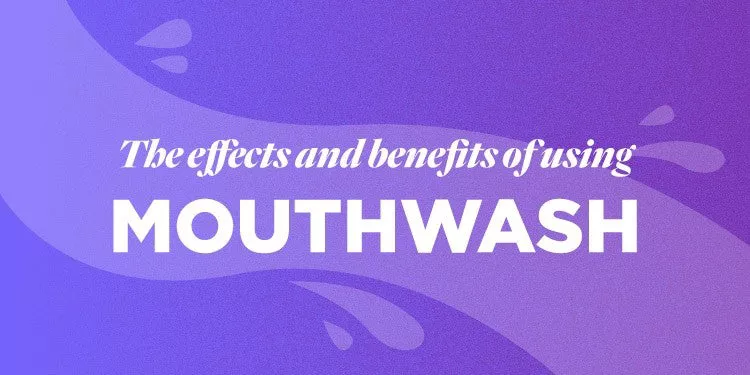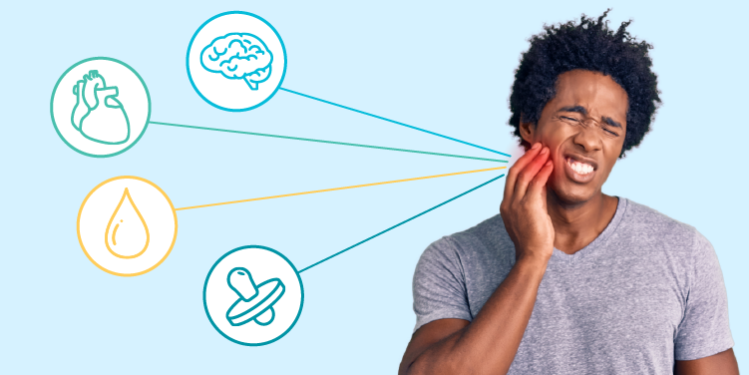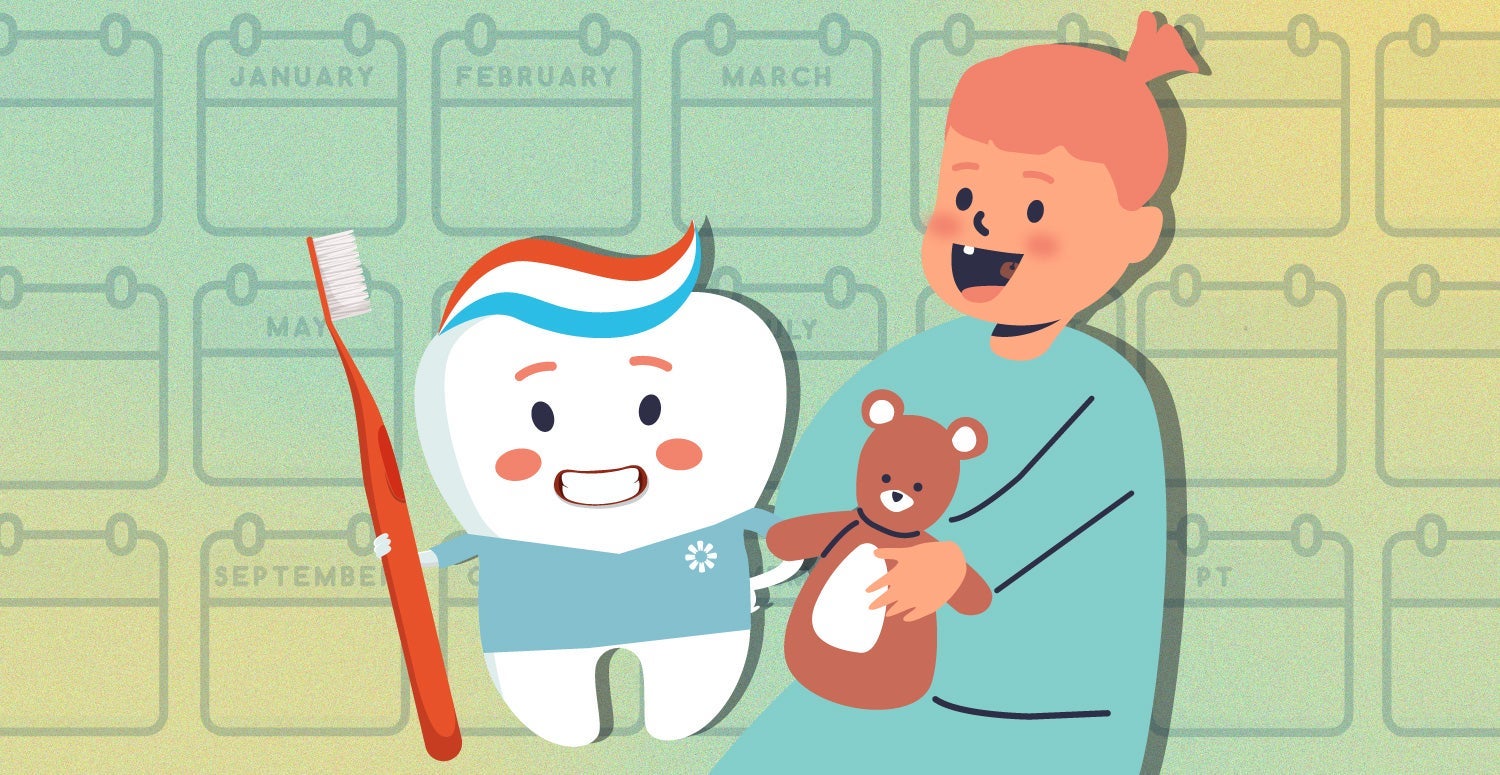Keeping your teeth and gums healthy starts with implementing an oral care plan daily. Regular dental checkups are important too, but make sure you brush and floss each day. Using mouthwash is also an important aspect of taking care of your teeth.
What Is Mouthwash?
Mouthwash is a liquid product used to rinse your teeth, gums, and mouth. Also called an oral rinse, mouthwash typically contains a bacteria-killing antiseptic that targets the bacteria residing between the teeth and on the tongue.
Benefits of Mouthwash
Fights Bad Breath
While mouthwash doesn’t cure halitosis, it does fight it. Some bad breath emanates from the lungs or stomach instead of the mouth. In those cases, mouthwash simply masks the odor. Consult your dentist if you have chronic bad breath, as the cause could be a sign of a more serious issue.
Combats Gum Disease
Mouthwash rids teeth of bacteria that, if it lingers, can form into tooth decay. Tooth decay that is left untreated can worsen. That leads to infections and, potentially, gum disease.
Fights Cavities
Plaque Prevention
Mouthwash prevents plaque buildup; however, it doesn’t remove existing plaque. That’s why using mouthwash as a complement to brushing and flossing is a critical part of your mouth health routine.
Helps Pregnant Women
Pregnant women are susceptible to gingivitis. Gum disease and tooth decay can lead to serious complications with the pending birth. For those reasons, women are advised to use mouthwash during their pregnancy.
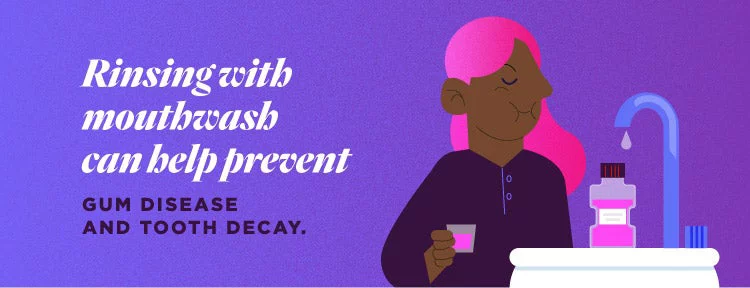
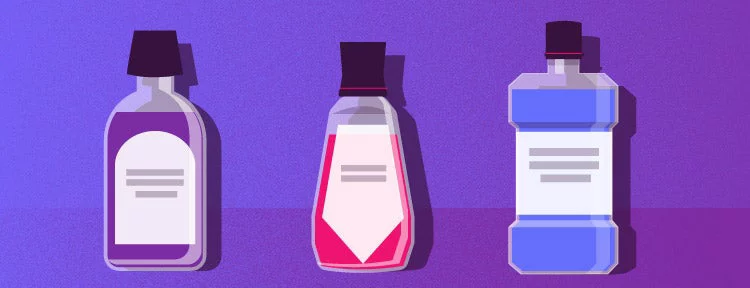
Types of Mouthwash
Mouthwashes fall into two categories — cosmetic and therapeutic — based on their ingredients:
- Therapeutic mouthwashes. This type has active ingredients that kill bacteria. They also help reduce plaque, gingivitis, cavities, and bad breath. Mouthwashes with fluoride prevent or reduce tooth decay.
- Cosmetic mouthwashes. This type temporarily controls or reduces bad breath. It also leaves a pleasant taste in your mouth. That said, it doesn’t reduce the risk of cavities or gum disease.
Alkaline Mouthwash
Alcohol-Free Mouthwash
Alcohol-free mouthwash also protects composite restorations and is favored by those who don’t like the burning sensation brought about by alkaline mouthwash.
Find a Dentist Near Me
Consult your dentist to discuss any questions about mouthwash and oral health. Or, check out The Smile Generation Find a Dentist tool to find a dentist near you for all your mouth health needs. You can read patient reviews, peruse staff bios, and schedule an appointment online with a click of your mouse.
Find your trusted, local dentist today!
Sources
Watson, Kathryn, “Everything You Need to Know About Using Mouthwash,” Healthline, November 25, 2019, healthline.com/health/how-to-use-mouthwash
How to keep your teeth clean, National Health Service, February 15, 2022, https://www.nhs.uk/live-well/healthy-teeth-and-gums/how-to-keep-your-teeth-clean/
Salinas, Thomas J., D.D.S., “When and how often should you brush your teeth?”, The Mayo Clinic, https://www.mayoclinic.org/healthy-lifestyle/adult-health/expert-answers/brushing-your-teeth/faq-20058193
8 Things You Should Know About Your Mouthwash, TruBlu Dentistry, January 25, 2018, trubludentistry.com/blog/8-things-know-mouthwash/
Should You Use Mouthwash Before or After Brushing?, Colgate, colgate.com/en-ph/oral-health/adult-orthodontics/should-you-use-mouthwash-before-or-after-brushing
Alcohol Vs. Alcohol Free Mouthwash: What’s The Difference?, Alliance Dental, alliancedental.ca/oral-health-tips/alcohol-vs-alcohol-free-mouthwash-whats-the-difference/
The Benefits of Alcohol-Free Mouthwash, Colgate, https://www.colgate.com/en-us/oral-health/selecting-dental-products/benefits-of-alcohol-free-mouthwash
What is the Best Alkaline Mouthwash?, Central Point Family Dentistry, September 28, 2022, https://www.centralpointfamilydentistry.com/post/what-mouthwashes-are-like-rinsing-with-soda
Mouthwash, Mouth Healthy, https://www.mouthhealthy.org/all-topics-a-z/mouthwash/
How Does Mouthwash Work? Answering your mouthwash questions, Colgate, January 9, 2023, https://www.colgate.com/en-us/oral-health/selecting-dental-products/how-does-mouthwash-work
Smile Generation blog articles are reviewed by a licensed dental professional before publishing. However, we present this information for educational purposes only with the intent to promote readers’ understanding of oral health and oral healthcare treatment options and technology. We do not intend for our blog content to substitute for professional dental care and clinical advice, diagnosis, or treatment planning provided by a licensed dental professional. Smile Generation always recommends seeking the advice of a dentist, physician, or other licensed healthcare professional for a dental or medical condition or treatment.


